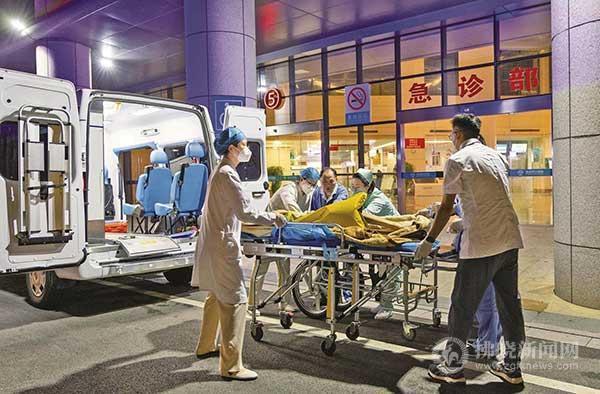
Medical staff in the emergency department received emergency treatment.
As the first line to save lives, emergency medical staff are always ready to win the chance of survival for patients. Faced with the heavy task of treating critically ill patients and the risk of infection in the rescue operation, emergency patients did not hesitate at all. They went all out to interpret the doctor’s kindness with practical actions.
Today is the seventh "China Physician’s Day". We recorded the daily work status of the emergency department of Suzhou Municipal Hospital with a lens, in order to pay tribute to angels in white who is racing against time and guarding his life.
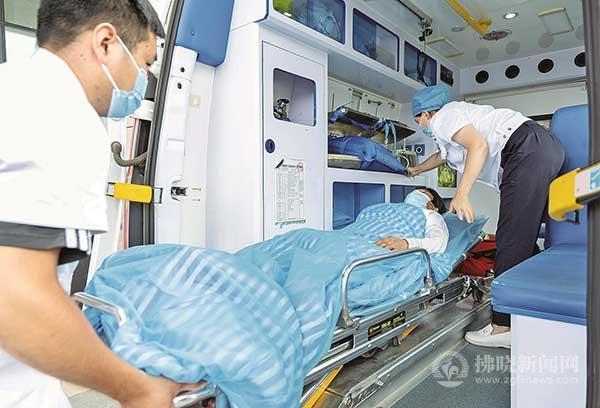
120 ambulance personnel quickly transported the patient.
From Chu Yang to twilight, and then from the dead of night to the dawn, the emergency department of the municipal hospital is always brightly lit. Outside the gate, the ambulance’s "beep beep beep beep beep beep beep beep beep beep beep beep beep beep beep beep beep beep beep beep beep beep beep beep beep beep beep beep beep beep beep beep beep beep beep beep beep beep beep beep beep beep beep beep beep beep beep beep beep beep beep beep beep beep beep beep beep beep beep beep beep beep beep beep beep beep beep beep beep beep beep beep beep beep beep beep beep beep beep beep beep beep beep beep beep beep beep beep beep beep beep beep beep beep beep beep beep beep beep beep beep beep beep beep beep beep beep beep beep beep beep beep beep beep beep beep beep beep beep beep beep beep beep beep beep beep beep beep beep beep beep beep beep beep beep beep beep beep beep beep beep beep beep beep beep beep beep beep beep beep beep beep beep beep beep beep beep beep beep beep beep beep beep beep
At 8 o’clock in the morning, it was the hospital handover time. Cheng Renli, director of the emergency department of Suzhou Municipal Hospital, presided over the morning meeting of the department as usual, listened to the work reports of various departments and the patient’s situation, and reminded the medical staff of medical safety and drug use norms. After the morning meeting, everyone quickly returned to work. At this moment, a galloping ambulance outside the emergency room building stopped at the door, and four medical staff looked after the patient and rushed to the emergency room with an automatic stretcher.
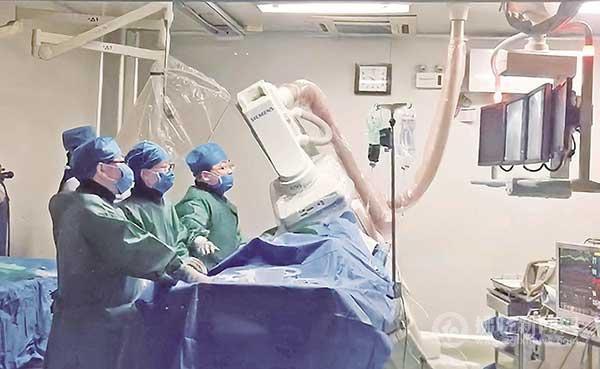
Cheng Renli (first from right), director of the emergency department, leads the team to perform cardiac interventional surgery for patients.
When seeing a patient sent to the intensive care room, zhangqian, the nurse in charge, immediately greeted him, dressed the patient, covered the quilt, turned on monitoring instruments such as ECG monitor, assessed vital signs, established venous access, and then emergency doctors intervened and quickly started treatment.
"Whenever a patient who needs first aid is sent, we will first be treated according to different conditions, and those with mild symptoms will be sent to the emergency room, and those who are sent to the rescue room will be critically ill, and then we will evaluate the required diagnosis and treatment methods according to the patient’s situation." Zhangqian has 20 years of working experience in the emergency room, and this job has made her calm and calm. In her view, the urgent task of emergency room medical staff is to "save" and let critically ill patients "survive", followed by "diagnosis". "The diagnosis must be clear, the corresponding treatment plan must be clear, and then they will be admitted to the corresponding specialist clinic."
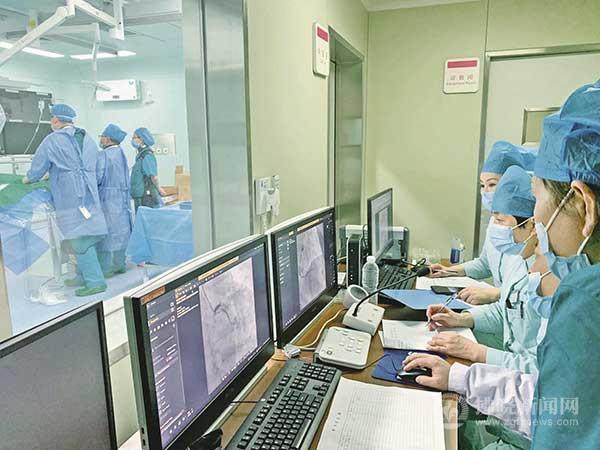
Acute myocardial infarction in emergency interventional surgery.
A heavy iron gate blocked the contact between critical patients in the emergency intensive care unit (EICU) and the outside world. A patient with a large-area fracture of the whole body has just been brought in. The rescue room has installed a neck brace, established a venous access and inserted a catheter for him. Wang Yuhang, a young male nurse in EICU, then took over the nursing work of this patient. The young man told reporters while making the bed for the patient: "My job is mainly to monitor the patient’s vital signs at all times after the doctor’s diagnosis, and clean up the body and treat the patient with drugs." In front of a critically ill patient’s bed, after examining the patient, Huang Chongjian, an emergency doctor, carefully told the medical staff around him about the current patient’s situation and warned the precautions for medication.
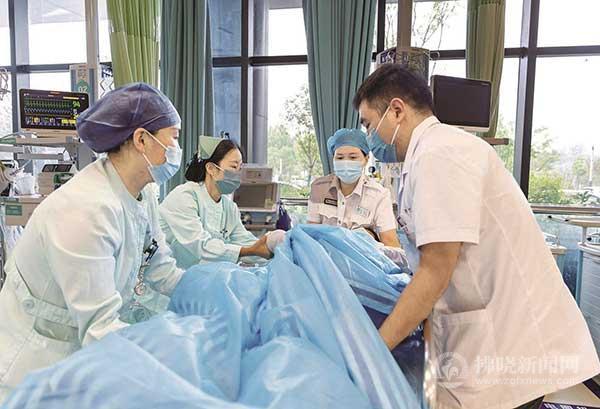
The critically ill patients were transferred from the intensive care room to the monitoring bed.
With the sound of "Didi, Didi …", the medical staff in the emergency room and EICU are fighting against the death for the patients. Wu Xinlong, who received the information from the 120 command center in the dispatching room, was also busy from the morning. On the two computer monitors in front of him, the page shows the order form of 120 in the north and south districts of the municipal hospital to pick up patients. The form is filled with information such as receiving orders, leaving the car, calling for help, and the reason for calling for help. Yang Yang, deputy director of the emergency department of the municipal hospital and director of the sub-station of the 120 municipal hospital, told the reporter: "On that day, 120 vehicles and 31 trips were dispatched from the two hospitals, and 172 emergency patients were treated. When the emergency department is not idle, it will also undertake some large-scale activities on the basis of daily rescue work. "
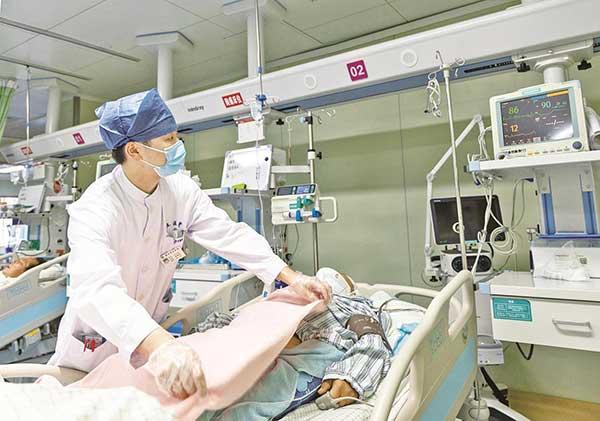
Observe the patient’s condition carefully.
In the emergency room, the reporter saw a group of people who robbed people with "death" and how people reborn hope in despair. Here, you can also see the life-and-death world, and you can see the mission and responsibility of medical staff.Text/Reporter Xu Leitu/Reporter Dong Muzi Special Photography Ma Yong
关于作者